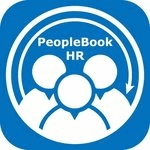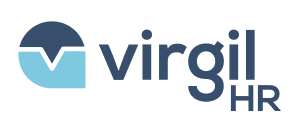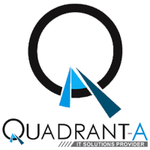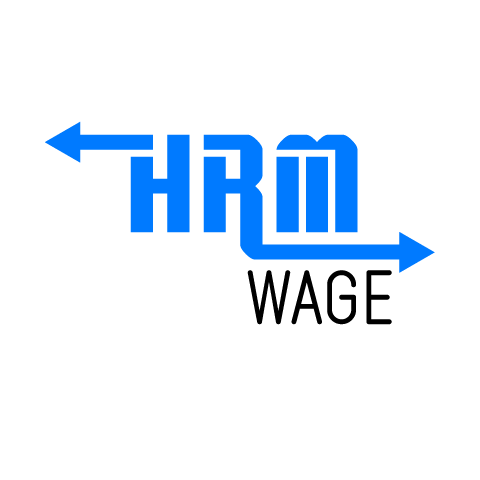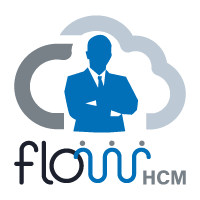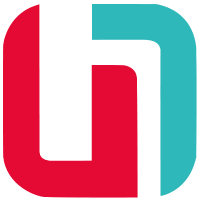What Is HRIS System?
A Human Resource Information System (HRIS) is a software solution that assists firms in managing and automating their HR activities. It acts as a centralized repository for all employee data, allowing HR professionals to quickly track and organize information including personnel records, payroll, benefits, training, and performance reviews. This all-in-one system includes a variety of modules, each designed to handle a certain area of HR management.
Some frequent modules are:
1. Employee Self-Service: This module allows employees to access and update their personal information, seek leave, view pay stubs, and more.
2. Recruiting And Onboarding: This module simplifies the hiring process by automating job advertisements, candidate screening, and new hire documentation.
3. Time And Attendance Tracking: This module allows companies to monitor and manage their employees' working hours, including overtime and time off requests.
4. Performance Management: This module enables managers and team leaders to define goals, conduct performance reviews, and provide feedback to improve employee performance.
5. Benefits Management: This module streamlines the administration of employee benefits, such as enrollment, tracking, and reporting. In addition to these fundamental modules, an HRIS system may include add-on capabilities like analytics and reporting, workforce planning, and talent management. Implementing an HRIS system can provide various benefits to any firm. It automates activities, lowers paperwork, and maintains data accuracy. It also allows HR personnel to focus on more strategic initiatives, resulting in increased efficiency and production. When selecting an HRIS system, it is critical to analyze your company's unique objectives and goals, as well as the system's features, pricing, and scalability. With the proper HRIS solution, you can streamline HR operations, increase employee engagement, and promote business growth.
What Are The Recent Trends In HRIS System?
The use of HRIS (Human Resource Information System) has become critical for enterprises of all sizes. With the ever-changing landscape of HR technology, buyers must be aware of current HRIS system developments in order to make informed purchasing decisions.
Here are the key trends in HRIS systems that are changing the way businesses manage their human capital.
1. Cloud-Based HRIS Systems One of the most significant changes in HRIS systems is the migration to cloud-based solutions. This technology enables businesses to access their HRIS from anywhere and at any time, eliminating the need for costly hardware or IT assistance. Cloud-based HRIS also provides improved security, regular upgrades, and scalability, making it a popular choice among customers.
2. AI And Machine Learning: (ML) AI and machine learning (ML) are rapidly being used in HRIS systems to automate and improve operations including recruitment, employee performance review, and workforce planning. These technologies reduce manual labor and provide useful information to aid decision-making.
3. Mobile Applications: Today's workforce is growing more mobile, and HRIS systems are responding to this trend by providing mobile applications. These apps enable employees to access company information, request time off, and even complete training courses using their cellphones. This not only boosts production, but also improves employee satisfaction.
4. People Analytics HRIS systems increasingly include extensive analytics capabilities, giving employers important insights into their workforce data. People analytics enables businesses to make data-driven decisions about employee engagement, retention, and performance, resulting in a more productive and engaged workforce.
5. Gamification: Gamification components in HRIS systems have become a popular way to boost employee engagement and motivation. This includes using game-like elements such as leaderboards, challenges, and incentives to make routine HR work more interesting and engaging.
6. Integration With Other Systems: HRIS systems are rapidly being connected with other business systems, such as payroll and accounting software, to create a more seamless and efficient workflow. This integration eliminates the need for human data entry, lowering the possibility of errors. Stay informed and make the correct choice. To make an informed purchase, a buyer must stay current on the latest trends in HRIS systems. Before making a purchase, consider your organization's size and demands, investigate various providers, and thoroughly analyze the features and functionality provided by each system. With the proper HRIS solution in place, you can streamline your HR procedures, boost employee engagement, and drive business growth.
Benefits Of Using HRIS System
HRIS (Human Resource Information System) is a software solution that consolidates HR services such as payroll, benefits administration, and personnel management into a single platform. This technology has become a crucial tool for firms of all sizes because it simplifies HR processes and aids in employee data management.
We will look at the numerous advantages of utilizing an HRIS system and how it might help your firm.
1. Automation Of Manual chores: One of the most significant advantages of using an HRIS system is the automation of manual chores. This solution eliminates the need for manual paperwork, saving time and lowering the likelihood of mistakes. Employee onboarding, performance assessments, and leave management are all simple tasks that can be automated, freeing up HR managers' time for more strategic efforts.
2. Improved Data Management: An HRIS system offers a centralized platform for managing employee data, such as personal information, work history, and performance records. This ensures that all information is correct and up to date, reducing the possibility of data discrepancies. Furthermore, the system provides secure storage for sensitive employee data, assuring data privacy and compliance with data protection requirements.
3. Improved HR Analytics: HRIS systems offer extensive reporting and analytics capabilities that assist firms in making educated decisions. HR professionals can use real-time data to monitor and track employee data and performance measures including attrition, absenteeism, and productivity. These insights might be useful in identifying issue areas and implementing effective remedies to improve overall HR operations.
4. Streamlined Recruitment Process: An HRIS system simplifies and improves the recruitment process, which is an important facet of human resource management. From job posting to candidate tracking and onboarding, the system automates the recruitment process, saving employers time and money. It also includes capabilities like resume processing, which make it easier to shortlist and evaluate prospects.
5. Improved Staff Engagement: An HRIS system can also help to increase staff engagement within a firm. Employee self-service portals allow employees to access their data, benefits information, and request leave or other permissions. This empowers employees and provides them control over their work, resulting in increased job satisfaction and engagement.
Important Factors To Consider While Purchasing HRIS System?
When it comes to purchasing an HRIS system, there are a few key elements to consider before making a selection. A Human Resource Information System (HRIS) is a comprehensive software solution that streamlines and automates a variety of HR operations, including recruiting, onboarding, and performance monitoring. Choosing the correct HRIS system for your company can have a big impact on both HR operations and overall business success.
Here are the major elements to consider while assessing HRIS systems:
1. Features And Functionality: The HRIS system's features and functionality are the most important factors to examine. Determine your organization's exact requirements and ensure that the system you select has the functionality essential to meet them. Some popular features to look for are applicant tracking, payroll management, employee self-service, and reporting capabilities.
2. Scalability: As your company grows, your HR requirements will change. As a result, it is critical to select an HRIS system that is easily scalable with your organization. Look for a system that can support an expanding number of employees, manage complex HR operations, and interface with other software solutions.
3. Usability: Any software's successful adoption requires a user-friendly interface. Make sure the HRIS system you chose is user-friendly for both HR professionals and employees. It should have a clean design, easy navigation, and self-service alternatives for employees.
4. Integration Capabilities: Your HRIS system should be able to communicate with other tools and software in your organization, such as accounting software, time and attendance systems, and performance management tools. This ensures smooth data flow and eliminates the need for manual data entry, eliminating errors and saving time.
5. Security And Compliance: Because HRIS systems handle sensitive employee data, it is critical to verify that adequate security measures are in place. Look for solutions that provide data encryption, regular backups, and compliance with relevant requirements such as GDPR and HIPAA.
6. Cost: HRIS systems may be a considerable investment for any firm, thus it is critical to weigh the costs carefully. Consider ongoing support and maintenance fees in addition to the initial purchase price. Also, weigh the cost against the anticipated return on investment in terms of enhanced efficiency, lower labor costs, and greater accuracy.
7. Customer Assistance: A dependable customer assistance system is essential for the successful implementation and efficient usage of the HRIS system. Look for vendors who provide timely and educated help by phone, email, or chat. By carefully considering these characteristics and selecting a reliable HRIS system, you can streamline your HR procedures, decrease paperwork, and save time and resources. Remember to consult with relevant stakeholders and undertake thorough research before making a final choice.
What Are The Key Features to Look For In HRIS System?
When looking for an HRIS system, you should emphasize a few essential aspects. These features are critical to increasing the efficiency and effectiveness of your HR processes.
Let's take a deeper look at each one and why it's important.
1. Core HR Functionality: First and foremost, your HRIS system should provide strong core HR functionality. This comprises functions including personnel data management, time and attendance tracking, payroll processing, and benefits administration. These tasks are the foundation of every HR department, and you should ensure that they are present and user-friendly in your HRIS system.
2. Self-Service Capabilities: A modern HRIS system should enable self-service for both employees and management. Employees can access their personal information, request time off, and examine pay stubs without requiring HR interaction. Similarly, managers can approve or reject requests, check team schedules, and access performance data all from within the system. This not only saves time for HR professionals, but also allows employees to have more control over their own HR needs.
3. Customization And Integration: Each HR department is unique, and your HRIS system should reflect this. Look for a system that is customizable, allowing you to adjust it to your specific business operations and requirements. Furthermore, connection with other systems, such as payroll software or a performance management platform, is critical for optimizing HR operations and minimizing redundant data entry.
4. Reporting And Analytics: Data is the foundation of effective HR strategy. An HRIS system with strong reporting and analytics features will enable you to monitor key indicators, spot trends, and make data-driven decisions. Look for a system that allows you to create customized reports and dashboards, as well as export data for additional analysis.
5. Mobile Accessibility: In today's fast-paced work environment, it is critical to have access to HR information and processes while on the go. A mobile-friendly HRIS system enables employees and managers to access information and execute tasks using smartphones and tablets. This is particularly important for distant and field staff.
6. Security: Because HRIS systems handle sensitive employee information, security aspects must be prioritized. To safeguard the security of your employees' personal information, choose a system that includes data encryption, user access controls, and regular data backups. By properly assessing these critical aspects in potential HRIS systems, you can verify that the system fulfills your organization's specific HR requirements. Remember that the solution you choose should not just increase the efficiency of your HR processes, but also the whole employee experience.
Why Do Businesses Need HRIS System?
Businesses require HRIS systems because they provide a simplified and efficient way to manage all areas of human resource management. HRIS systems provide a comprehensive platform for automating and organizing HR functions, including recruiting, onboarding, payroll, and performance management. One of the most significant advantages of an HRIS system is the time and cost savings it may offer.
Businesses can save critical time and resources by automating operations like data input, managing staff hours, and generating reports, allowing them to focus on more important responsibilities. Another significant benefit of an HRIS system is its capacity to boost employee engagement and satisfaction. Employees may readily access their information, request time off, and view their performance evaluations thanks to features such as self-service portals, which promotes transparency and empowerment.
Furthermore, HRIS systems provide a wealth of data and analytics to assist firms make educated labor decisions. These insights can help influence strategic planning and resource allocation by identifying areas for improvement and forecasting future personnel needs. HRIS systems are also critical for meeting regulatory obligations and ensuring data security. Businesses that store and manage sensitive employee data in a single system can assure regulatory compliance while also protecting their information from potential breaches.
How Much Time Is Required To Implement HRIS System?
The time required to develop an HRIS system varies based on several factors, including the organization's size, the breadth of the system, and the level of customization necessary. On average, it takes 3 to 6 months to completely establish an HRIS system. However, this timescale can be impacted by the organization's readiness, resource availability, and system complexity.
It is recommended that you allow enough time for the implementation process to ensure a smooth transition and avoid any potential obstacles. The implementation process normally consists of numerous steps, including planning, data migration, configuration, testing, and training. It is critical to have a well-defined strategy and a dedicated team to oversee the execution process. This will help to streamline the process and guarantee that the system is installed efficiently and successfully.
Furthermore, the involvement and cooperation of various departments within the company is critical to the success of HRIS deployment. This will help to guarantee that all important data is transferred correctly and that all departments are properly taught on how to utilize the system. To avoid delays and ensure timely installation, select an HRIS vendor that provides full support and training services. This not only ensures a seamless implementation, but also allows your business to fully utilize the system's possibilities.
What Is The Level Of Customization Available In HRIS System?
Customization is an important issue to consider when purchasing an HRIS system. Every organization has distinct business processes and needs, and a one-size-fits-all solution may not be appropriate for them. This is where the level of flexibility offered in an HRIS system is critical. Most HRIS systems allow for some level of customization, albeit the extent of options varies by system.
Some systems simply allow for simple modification, such as adding company logos and color schemes, but others provide more in-depth customization, allowing organizations to build the system to their exact requirements. The user interface is one issue to consider when customizing. A user-friendly, customisable interface can boost user adoption and productivity.
Some HRIS systems provide drag-and-drop interfaces, which allow users to rearrange and modify their homepage based on their preferences. It can also be beneficial to have the ability to hide or add features as needed based on the user's role and responsibilities. Another facet of customisation is the ability to set up modules and workflows. This includes configuring workflows, rules, and permissions based on the organization's specific processes and structure.
Organizations can create their own fields, categories, and labels to match their terminology, making data more useful and relevant. Some HRIS systems have APIs (Application Programming Interfaces), which allow businesses to create their own integrations and extensions. This level of customisation necessitates technical knowledge but offers greater flexibility and scalability for future requirements.
When deciding which HRIS system to purchase, it is critical to evaluate the level of customisation offered. Organizations should examine their needs and requirements before selecting a system that provides the appropriate balance of flexibility and ease of use for their specific activities. With customization possibilities, firms can design a system that suits their specific requirements while also improving their overall HR functions.
Which Industries Can Benefit The Most From HRIS System?
HRIS (Human Resource Information System) is an effective tool for streamlining and simplifying HR operations in firms of all sizes. It serves as a single database for employee information, allowing for a comprehensive perspective of the workforce and effective data management.
The advantages of an HRIS system are very significant in some industries, making it a critical investment for businesses operating in certain sectors.
1. Healthcare: The healthcare industry employs a diverse workforce consisting of full-time, part-time, and contract personnel. HRIS systems are a game changer for healthcare firms, as they meet tight regulatory regulations and need reliable record-keeping. It is useful for managing personnel calendars, tracking time and attendance, monitoring certifications and training, and ensuring regulatory compliance.
2. Manufacturing HRIS systems are an invaluable resource for the manufacturing industry. Managing a large workforce, different locations, and varying shifts can be difficult. Manufacturing organizations can use an HRIS system to improve procedures like scheduling, payroll, and benefits administration. It is also useful for tracking employee productivity and handling performance assessments.
3. Retail: The retail industry has a high turnover rate and employs a big number of part-time and seasonal workers. This makes keeping track of attendance, scheduling, and payroll time-consuming. An HRIS system can automate these operations, allowing managers to focus on other important duties. It can also help measure sales performance, manage training and development, and streamline the onboarding process for new employees.
4. Education: HRIS systems are an excellent fit for educational institutions, including schools, colleges, and universities. They help with the management of personnel data, student records, and attendance tracking. Automated methods eliminate the need for manual data entry, reducing errors while adhering to labor rules and regulations.
5. Banking & Finance: The banking and financial industries place a premium on confidentiality and stringent HR management procedures. HRIS solutions offer a secure platform for managing sensitive employee data while guaranteeing compliance with industry-specific requirements. It also streamlines recruitment, onboarding, and performance management processes, allowing HR departments to operate more efficiently.
Conclusion
In conclusion, selecting the best HRIS system for your firm is a critical decision that necessitates extensive research and consideration. Following the standards outlined in this buyer's guide will allow you to make an informed purchase that matches your organization's specific demands. First and foremost, examine your company's specific demands and goals.
This will help you narrow down the features and functionalities that are critical to your HRIS system. Furthermore, taking into account your company's size and complexity, as well as your budget, will help you make an informed decision. Once you've determined your requirements, you should conduct extensive research and comparisons of various HRIS suppliers.
Look for providers with a good reputation, a proven track record of client happiness, and a diverse set of features that meet your requirements. When comparing HRIS systems, consider factors such as user-friendliness, customization choices, data security, and customer service. These elements can have a significant impact on both your overall experience and the system's effectiveness. Finally, don't forget to request demos and trial periods to gain hands-on experience with the HRIS system before making a decision. This will allow you to evaluate the features and functionalities to see if they match your needs.
To summarize, knowing your needs, researching and comparing suppliers, and taking advantage of demos and trials are critical steps in choosing the best HRIS system for your firm. By following these steps and using the information in this buyer's guide, you can make an informed decision and select an HRIS system that can streamline your HR procedures while also supporting your organization's growth.

